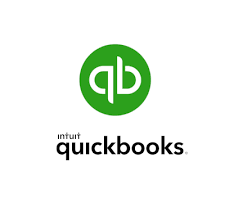
The “cloud” is bringing about massive upheaval in small business accounting.
You have heard the rumbling and upheaval, the carnage and disruption. You have seen images of accountants curled into the fetal position in their basement offices asking for the changes in accounting technology to please slow down.
Wait, you’ve not seen that?
You probably won’t see it either. Not because some of it is not happening but because we accountants are not prone to ostentatious displays of emotions.
In the past decade, cloud accounting has taken the industry by storm. A rather stable industry, accounting is being rocked by a tidal wave of change disrupting a group of people particularly averse to disruption.
The Rise Of QuickBooks Online
The most notable change for small and medium-sized businesses is the advancements of QuickBooks Online (QBO) from Intuit. Intuit has an absolutely gargantuan slice of the small business accounting market share in the US via its market-leading and powerhouse QuickBooks Desktop (QBD) accounting software. In recent years, Intuit has aggressively promoted QBO through conversions and deals to its massive QuickBooks ProAdvisor network of accountants and bookkeepers.
With the annual growth of QBO around 40%, you may be asking yourself, “Should I switch from Desktop (QBD) to Online (QBO)?
Before I discuss the advantages, let’s make sure we know what cloud accounting is.
QuickBooks Online Is Fundamentally Different Than QuickBooks Desktop
If you are a fan of QBD and have been running your business on that software you need to know one major fact about QBO:
Despite sharing a logo, QuickBooks Online and QuickBooks Desktop are nothing alike.
If your CPA and/or bookkeeper are comfortable in QBD, do not expect them to be comfortable in QBO. It will be like learning a new language for them. Functionality, reports and the entire structure of the software is different. The best analogy is BlackBerry vs. iPhone.
BlackBerry vs. iPhone
In 2007 the BlackBerry was the phone to have. Its market share was incredible. Anyone who was anyone had a BlackBerry. The terms “crackberries” and “BlackBerry thumb” were common phrases used due to their addictive nature.
However, things changed for BlackBerry (and everyone else!) when Apple released the iPhone. Fast forward to 2016 and research firm Gartner declares that BlackBerry controls 0.0% of the smartphone market.
How did a market-leading company that controlled the destiny of its industry completely implode?
Unlike BlackBerry, the iPhone created a platform rather than just a phone. Apple did not try to be all things to all people by writing the applications for every company, they just wanted to own the platform. In a brilliant move now repeated by others, Apple broadcast how to integrate into its platform. By creating an open platform, teaching developers how to write apps for the platform, Apple showed others how to best use its software.
Cloud accounting is taking a page from Apple and QBO is at the front of the pack. Intuit knows that if they don’t make QBO a market leader then they will be right where BlackBerry is today.
Cloud accounting is the smartphone for small business accounting.
The same way developers programmed business apps to integrate into the smartphone, they are creating apps for cloud-based accounting platforms. There are over 600 applications for QBO alone solving problems from sales tax, inventory management, accounts payable, time tracking and many more.
Is your business looking to smooth out processes? There’s likely an app for that.
The benefits of this integration are reducing duplicate work and data entry for businesses.
QBO Will Provide Location Independence
Of all the promises of the cloud, one of its most attractive features is the ability to be location independent. Cloud computing is accessible by using just an internet browser.
Even if you don’t want to work from Bali, cloud accounting makes many aspects of dispersing information easier. Setting up the board of directors with financial reports allows them to log in and monitor the situation regularly helping to keep sensitive reports out of email. The apps integrating can be accessed from anywhere, allowing you to pay bills from Africa.
Location independence means managers can monitor their company without being onsite. Offsite work suddenly expands your talent pool from which to recruit and makes it more attractive to hire and retain. Assuming you have accountants who can drive the software, much of your back office can be outsourced and paperless allowing you to outsource the stress of hiring and retraining staff while you focus on how your business makes money.
What cloud accounting offers to business owners is truly revolutionary upending the status quo in accounting as much as the spreadsheet!
QBO Will Assist In Making Your Company Paperless
As mentioned above, among the benefits of cloud accounting include the ability to integrate with the hundreds of apps (third party software companies) into the accounting software. Because they integrate digitally into the software, by nature they are digitizing information.
For example, receipts, bills, invoices and other paper produced and managed by a business is easily digitized. This reduction of paper is an added benefit to switching to the online version of QuickBooks.
(To be fair to lovers of QBD, many of these applications can integrate with QBD…just not as easily. The process often requires a manual step or the information only flows in one direction. It is technically possible, but not nearly as easy.)
A paperless office has less clutter and is more automated. All of this requires fewer people. Fewer people means less overhead helping you make money, which is what you need to survive.
New Technology Allows You To Take Pride In Your Business
What kind of business do you manage? Do you purchase Apple products for your staff? PCs? Do you provide fancy coffee? What kind of image do you project to your employees, prospective employees, vendors and community?
Chances are you have shown up at a job where the “paint” was a little old. The furniture was dated or second hand. The software platforms were dated and there wasn’t much of a budget for training. Do you remember that feeling?
You weren’t bragging about your employer then.
A switch to cloud accounting for your small business not only allows you to take advantage of some efficiency gains in software and location independence, but it also positions your company as a leader. The latest and greatest technology and systems in your back office, paperless billing, and payables communicate the kind of company you manage. A company culture of adapting and investing in problem-solving technology is who people want to be associated with. This relatively minor move is a supporting argument in why people want to do business with your company.
Caution, It Is A Major Upgrade
The argument for upgrading from QBD to QBO is threefold; paperless processes, location independence and a fresh image for your company. While many will cite improved security, reduction of overhead and even reduced cost, I believe these are the primary benefits of upgrading.
However, be forewarned, it is a major change. Changing anything for accountants is hard and it will require more time, salesmanship and effort than anticipated, but the benefits are substantial.
If you have you switched from QBD to QBO, I’d love to hear from you.
Email me and tell me how smoothly it went.
What was the biggest improvement in your business?
